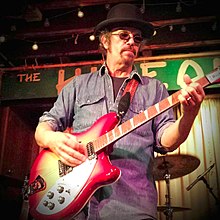
Wilco is an American rock band based in Chicago. The band was formed in 1994 by the remaining members of alternative country group Uncle Tupelo after singer Jay Farrar's departure. Wilco's lineup changed frequently during its first decade, with only singer Jeff Tweedy and bassist John Stirratt remaining from the original incarnation. Since early 2004 the lineup has been unchanged, consisting of Tweedy, Stirratt, guitarist Nels Cline, multi-instrumentalist Pat Sansone, keyboard player Mikael Jorgensen, and drummer Glenn Kotche. Wilco has released thirteen studio albums, a live double album, and four collaborations: three with Billy Bragg and one with the Minus 5.
Alternative country is a loosely defined subgenre of country music and/or country rock that includes acts that differ significantly in style from mainstream country music, mainstream country rock, and country pop. Alternative country artists are often influenced by alternative rock. Most frequently, the term has been used to describe certain country music and country rock bands and artists that are also defined as or have incorporated influences from alternative rock, indie rock, punk rock, heartland rock, Southern rock, progressive country, outlaw country, neotraditional country, Texas country, Red Dirt, roots rock, indie folk, folk rock, rockabilly, bluegrass, and honky tonk.

Music of Missouri has a storied musical history. Missouri has had major developments in several popular music genres and has been the birthplace or career origin of many musicians. St. Louis was an important venue for early blues, jazz, country, and bluegrass. Kansas City has had famous performers such as Charlie Parker, Count Basie, Lester Young, and the distinct style of Kansas City jazz. Ragtime made influence in the city of Sedalia, Missouri, due to Scott Joplin and his publisher John Stark, and through Missouri native James Scott.

Uncle Tupelo was an alternative country music group from Belleville, Illinois, active between 1987 and 1994. Jay Farrar, Jeff Tweedy, and Mike Heidorn formed the band after the lead singer of their previous band, The Primitives, left to attend college. The trio recorded three albums for Rockville Records, before signing with Sire Records and expanding to a five-piece. Shortly after the release of the band's major label debut album Anodyne, Farrar announced his decision to leave the band due to a soured relationship with his co-songwriter Tweedy. Uncle Tupelo split on May 1, 1994, after completing a farewell tour. Following the breakup, Farrar formed Son Volt with Heidorn, while the remaining members continued as Wilco.
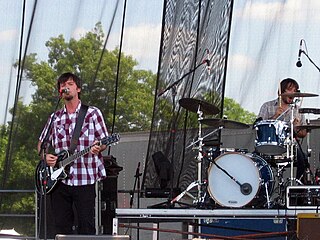
Son Volt is an American rock band formed in 1994 by Jay Farrar after the breakup of Uncle Tupelo. The band's current line-up consists of Farrar, Andrew DuPlantis, John Horton (guitar), Mark Patterson (drums), and Mark Spencer. In addition to playing alternative rock, the band is considered a staple of the alternative country rock movement of the 1990s. The band's sound also is rooted in folk rock and Americana. The band went on an indefinite hiatus in 2001, before reforming in 2004.

Jay Stuart Farrar is an American songwriter and musician currently based in St. Louis. A member of two critically acclaimed music groups, Uncle Tupelo and Son Volt, he began his solo music career in 2001. Beyond his established talents as a songwriter, he is a guitarist, pianist, harmonicist, and a vocalist.

Jeffrey Scot Tweedy is an American musician, singer songwriter, author, and record producer best known as the lead vocalist and guitarist of the band Wilco. Tweedy, originally from Belleville, Illinois, began his music career in high school with his band The Plebes along with Jay Farrar, also in the band. It became the alternative country band Uncle Tupelo.
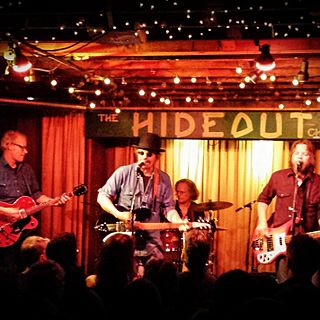
The Bottle Rockets were an American rock band formed in Festus, Missouri in 1992, and was based in St. Louis. Its founding members were Brian Henneman, Mark Ortmann (drums), Tom Parr and Tom Ray ; the most recent lineup consisted of Henneman, Ortmann, John Horton and Keith Voegele. Most members of the band have contributed to their catalog of original songs, as have Robert Parr and schoolteacher Scott Taylor.

John Chadwick Stirratt is an American bassist and multi-instrumentalist for Wilco and The Autumn Defense.
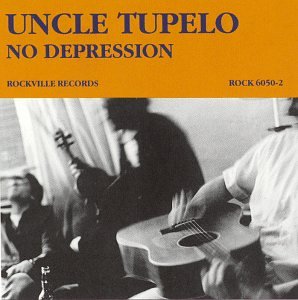
No Depression is the first studio album by alternative country band Uncle Tupelo, released in June 1990. After its formation in the late 1980s, Uncle Tupelo recorded the Not Forever, Just for Now demo tape, which received a positive review by the College Media Journal in 1989. The review led to the band's signing with what would become Rockville Records later that year. The album was recorded with producers Sean Slade and Paul Q. Kolderie at Fort Apache Studios, on a budget of US$3,500.

Being There is the second studio album by the American rock band Wilco, released on October 29, 1996, by Reprise Records. Despite its release as a double album, Being There was sold at a single album price as a result of a deal between lead singer Jeff Tweedy and the band's label Reprise Records. Compared to their debut album A.M. (1995), the album was an improvement for the band in both sales and critical reception. Taking its name from the 1979 film of the same name, the self-produced album featured more surrealistic and introspective writing than on A.M. This was due in part to several significant changes in Tweedy's life, including the birth of his first child. Musically, it juxtaposed the alternative country styles songs reminiscent of Uncle Tupelo with psychedelic, surreal songs. It was the only Wilco album with steel guitarist Bob Egan, their first with multi-instrumentalist Jay Bennett and their last with multi-instrumentalist Max Johnston.

A.M. is the debut studio album by the American rock band Wilco, released on March 28, 1995, by Sire Records and Reprise Records. The album was released only months after the breakup of Uncle Tupelo, an alternative country band that was the predecessor of Wilco. Prior to its release, there was debate about whether the album would be better than the debut album of Son Volt, the new band of former Uncle Tupelo lead singer Jay Farrar.

March 16–20, 1992 is the third studio album by alternative country band Uncle Tupelo, released on August 3, 1992. The title refers to the five-day span during which the album was recorded. An almost entirely acoustic recording, the album features original songs and covers of traditional folk songs in near equal number, and was produced by R.E.M. guitarist Peter Buck.
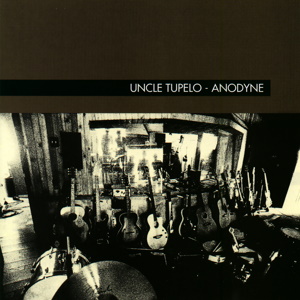
Anodyne is the fourth and final studio album by alternative country band Uncle Tupelo, released on October 5, 1993. The recording of the album was preceded by the departure of the original drummer Mike Heidorn and the addition of three new band members: bassist John Stirratt, drummer Ken Coomer, and multi-instrumentalist Max Johnston. The band signed with Sire Records shortly before recording the album; Anodyne was Uncle Tupelo's only major label release until 89/93: An Anthology in 2002.
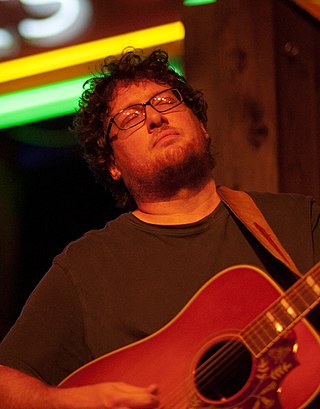
Max Johnston is a songwriter and multi-instrumentalist best known for his work on fiddle, Dobro, banjo, and mandolin with the bands Uncle Tupelo, Wilco and more recently, The Gourds. Johnston is the younger brother of singer-songwriter Michelle Shocked and has supported her in concert tours as well.
Mike Heidorn, born 1967 in Belleville, Illinois, is the former drummer and founding member of alternative country bands Uncle Tupelo and Son Volt. Heidorn also played with the Uncle Tupelo precursors the Primitives and the one-off band Coffee Creek with Jay Farrar and Jeff Tweedy of Uncle Tupelo and Brian Henneman of The Bottle Rockets.
The Jeff Tweedy discography covers albums that he has recorded with Uncle Tupelo, Wilco, solo albums, and various side projects.

Wilco (The Album) is the seventh studio album by the American rock band Wilco, released on June 30, 2009, by Nonesuch Records. Prior to release, Wilco streamed the album on their website. The album was nominated for a Grammy Award for Best Americana Album.
Tom V. Ray is an American bassist living in Chicago. He was born in 1965, and grew up on a farm in Vincennes, Indiana.
JC Brooks Band is an American indie soul band from Chicago, Illinois, United States. The band consists of JC Brooks (vocals), Alec Lehrman (guitar), Theodore Berry the IV (bass), Jeremy Tromburg (keyboard), Jovia Armstrong (percussion) and Kevin Marks (drums). Describing their sound as "post-punk soul," the band combines elements of funk, soul, indie rock, R&B, and punk, into a unique take on the soul genre.
